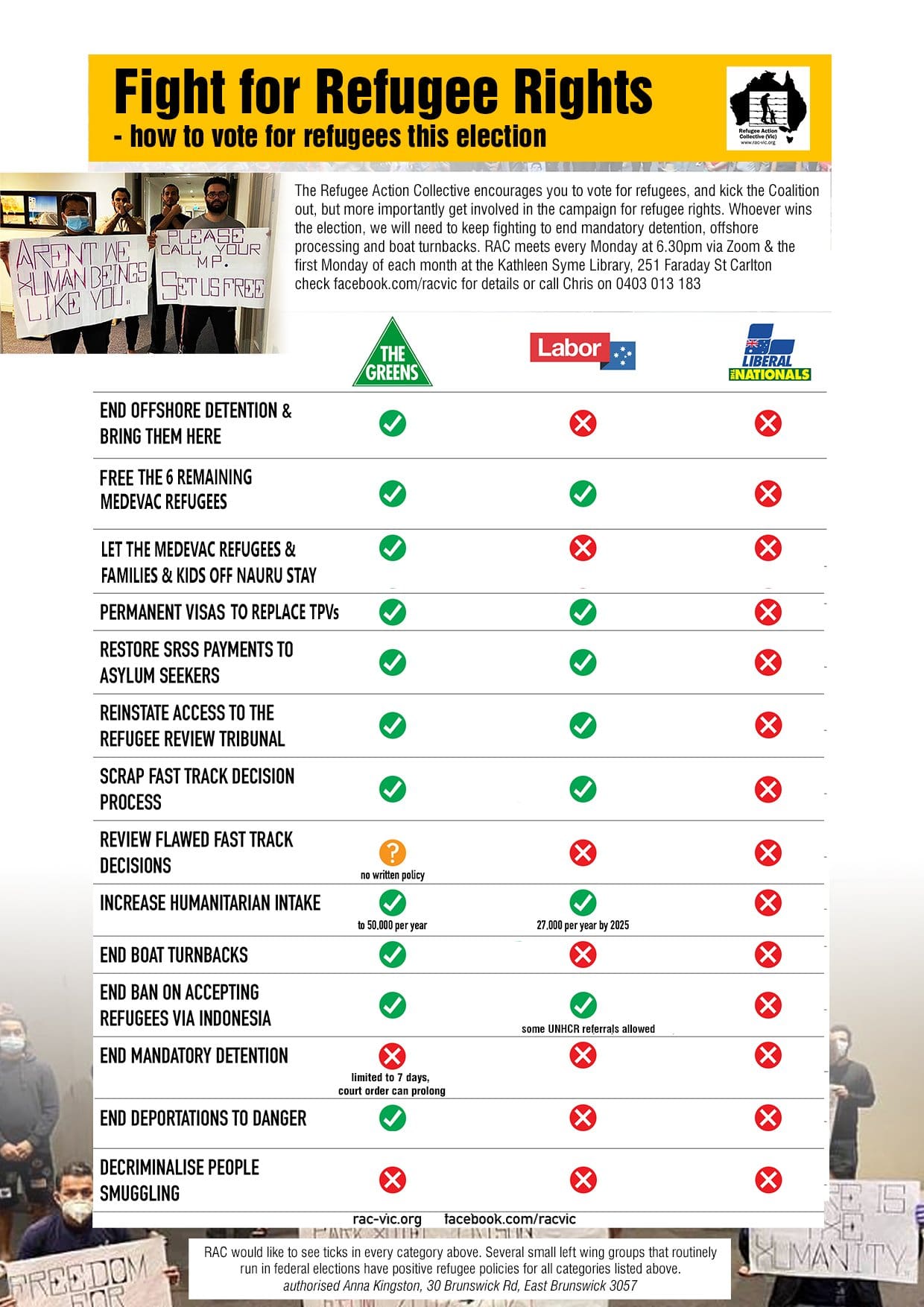The Refugee Action Coalition (RAC) hosted a forum in Surry Hills on Monday discussing how refugees have been repeatedly used as a political scapegoat, the implications of the upcoming Federal Election for refugees, and what activists and the general public can do to support them.
The panel of speakers included Zaki Haidari, an Afghan Hazara refugee on temporary visa, Behrouz Boochani, a journalist and former Manus refugee from New Zealand, and Matilda Fay, an activist for the RAC and UTS staff.
Haidari, who is on the Safe Haven Enterprise visa and has lived in Australia for ten years in separation from his family and with no guaranteed future stability, began by describing the “dire situation” of the refugee crisis.
“The power that [authorities] use and the way they use it is just inhuman,” he said.
Haidari argued that refugees alone cannot stand against institutions of authority, having been “dehumanised into very small things”.
He emphasised Australia’s recent history of harsh refugee treatment, such as the Bridging Visas in 2013 that denied refugees working rights and access to formal education, the Turn Back Policy in 2014 that forced Indonesian refugees in boats to turn back despite personal dangers, and the Morrison government’s 2020 cuts to the humanitarian intake from 18,750 places to 13,750.
Haidari encouraged attendees to take action and “use your power” in this upcoming election, because “power gives hope, and these people need hope to move forward”.
“All the refugees ask for is a safe, permanent home, and to be reunited with their families,” he said.
Boochani, meanwhile,emphasised Australia’s marginalisation and inhumane treatment of refugees.
“30,000 people are in the [refugee] community, and they have been under torture. The system always chases them,” Boochani said.
“[Even after] they are free, the system tortures them. Sometimes this torture is just by sending a simple letter, threatening deportation or threatening that they will never get a permanent visa.”.
Boochani reflected on the 2019 election when thousands of refugees on Manus Island “thought that Labor would win, and that change would be effected”.
“But that never happened .That was a dark day. I myself, probably for the first time, lost hope when the Liberals won the election… I was thinking, these people cannot stay in this situation for another three years,” he said.
Boochani concluded by emphasising that although “refugees’ lives get affected by politics more than anyone [else], they do not have voter’s rights”, and they are thus stuck in a “cycle of hope and disillusionment”.
“We need to really fight – this time, the people of Australia must do something for human rights,” he said.
Fay reiterated the need for public action: “It’s important that when we hear people’s stories we don’t just sit and listen, but get involved.”
She discussed the RAC’s approach, which will extend beyond the upcoming election. “What actually drives RAC is campaigns, rallies, protests. We need to continue to build a movement that any government can’t ignore.”
Fay reiterated the RAC’s apprehensive position on the New Zealand deal struck in March, that would guarantee 450 refugees’ resettlement in New Zealand over the next few years.
“450 people isn’t enough.
“We need to fight to dismantle offshore detention entirely. What’s going to win these changes is the same thing that has gotten us to where we are now: consistent campaigning, consistent public pressure,” she said.
An attendee from the floor challenged the panel’s “reluctance to criticise the ALP”, pointing out that “there are people on the conservative side that support refugees”. He said that the “refugee issue” shouldn’t become “a partisan issue”.
Haidari agreed that the refugee crisis “is not an issue only for Leftists; it’s an issue of human rights,” and that “we should reach out to the wider community.”
However, Behrouz maintained that the Liberal party has not adequately handled the issue. “[The Liberal party] established their campaign on ‘national security’; they have been torturing people because of what they claim to be ‘national security’… [whenever] anything wrong happen[s] in Australia, they blame it on refugees, because refugees are dehumanised, marginalised, and people don’t hear them. We have to challenge this mechanism.”
“If we don’t create political change, they will continue to do this. This government has shown that they are capable [of doing] any kind of inhumane policy,” Behrouz said.
The Panel encouraged attendees to support refugees at the ballot boxes. The Federal Election is on 21 May.
A recording of the forum can be found here.






